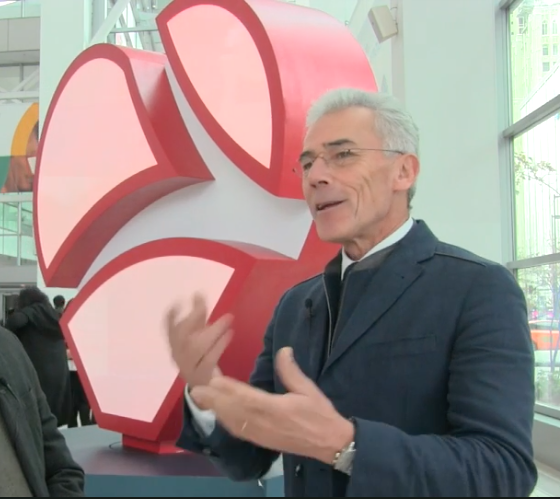The American College of Cardiology’s Cardiovascular Summit will begin on Thursday, Feb. 22, 2018, bringing together leading experts from the entire cardiovascular care team to discuss and present best practices on operational excellence, cost efficiency, leadership training and workforce wellness during this time of changing healthcare delivery.

One of the biggest concerns in radiology in recent years is the safety of gadolinium-based contrast agents (GBCAs) used ...
A new study published in the Journal of the American College of Cardiology confirms non-invasive cardiac magnetic resonance (CMR) provides a highly accurate means of assessing mitral regurgitation in patients with valvular heart disease. Seth Uretsky, M.D., medical director of cardiovascular imaging and associate director of the Cardiovascular Fellowship Program at Atlantic Health System, served as the study’s lead author.
Providing exceptional cardiovascular care for patients to achieve the best possible outcomes is the number one goal for ...
The American College of Cardiology (ACC) and the Saudi Arabian Cardiac Interventional Society have partnered to implement the NCDR CathPCI Registry in hospitals across Saudi Arabia. The CathPCI Registry assesses the characteristics, treatments and outcomes of heart disease patients who receive diagnostic catheterization as well as percutaneous coronary intervention procedures.
Medical devices, including cardiovascular implantable electronic devices, could be at risk for hacking. In a paper published online in the Journal of the American College of Cardiology, the American College of Cardiology’s Electrophysiology Council examines the potential risk to patients and outlines how to improve cybersecurity in these devices.
The U.S. Food and Drug Administration (FDA) announced that Medtronic is recalling certain implantable cardioverter defibrillators (ICDs) and cardiac resynchronization therapy devices (CRT-Ds) due to a defect in the manufacturing process. The FDA said this defect causes an out-of-specification gas mixture inside the device and may prevent the device from delivering the electrical shock needed to pace a patient’s heartbeat or revive a patient in cardiac arrest.
Cardiac positron emission tomography (PET) is growing in popularity among cardiologists because it provides the ability ...

February 8, 2018 — The U.S. Food and Drug Administration (FDA) and the Nuclear Regulatory Commission (NRC) recently took ...
February 26, 2018 – The American Society of Echocardiography (ASE) and its International Alliance Partners are joining ...
February 26, 2018 – Designed specifically for small vessels, Medtronic plc announced U.S. Food and Drug Administration ...
When performing radiofrequency (RF) ablation to treat cardiac arrhythmia, medical professionals must balance the safety ...
February 23, 2018 — Boston Scientific announced In November 2017 a delay to timelines for commercialization of the Lotus ...
February 23, 2018 — CorFlow Therapeutics AG announced that the company will present new insights into the coronary ...
NaviGate Cardiac Structures Inc. (NCSI)announced that on Feb. 2, 2018, its catheter-guided Gate valved-stent bioprosthesis became the first Canadian orthotopic valve replacement to treat severe tricuspid regurgitation. The procedure was performed at the Quebec Heart and Lung Institute, Laval University (Quebec City, Canada) by the Institute’s Cardiac Team, led by Josep Rodés-Cabau, M.D., interventional cardiologist, an internationally known expert in tricuspid disease therapy; and François Dagenais, M.D., chief of cardiac surgery at the institute. They performed the Health Canada-sanctioned Expanded Access (Compassionate Use) procedure in the patient who presented with severe symptomatic tricuspid regurgitation.
Change Healthcare Cardiology Hemodynamics is an integrated hemodynamic monitoring system for monitoring vital signs and ...
This video details the first use of a new protocol at The Ohio State University’s Wexner Medical Center to start sudden ...

Interventional cardiology has witnessed a rapid and constant evolution in both techniques and device technology since ...
When someone goes into cardiac arrest and first responders cannot shock their heart back into rhythm, there is virtually no chance of survival. However, a new protocol being tested at The Ohio State University Wexner Medical Center is already saving lives – increasing survival rates from zero to about 40 percent.


 February 28, 2018
February 28, 2018











